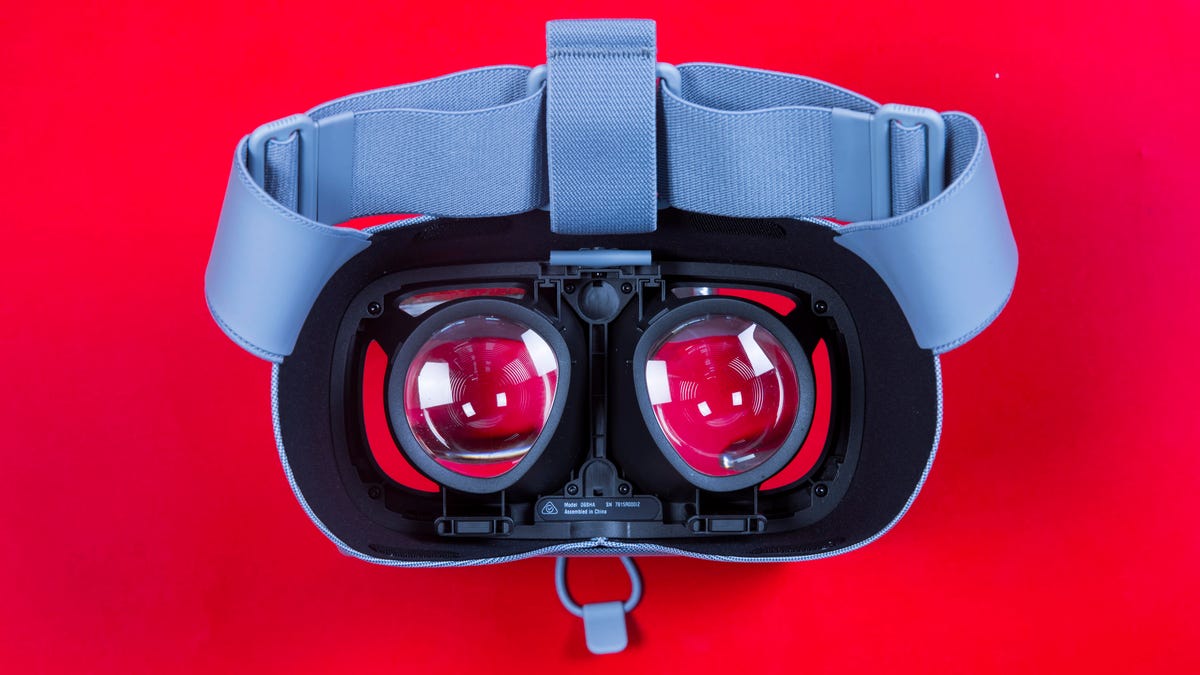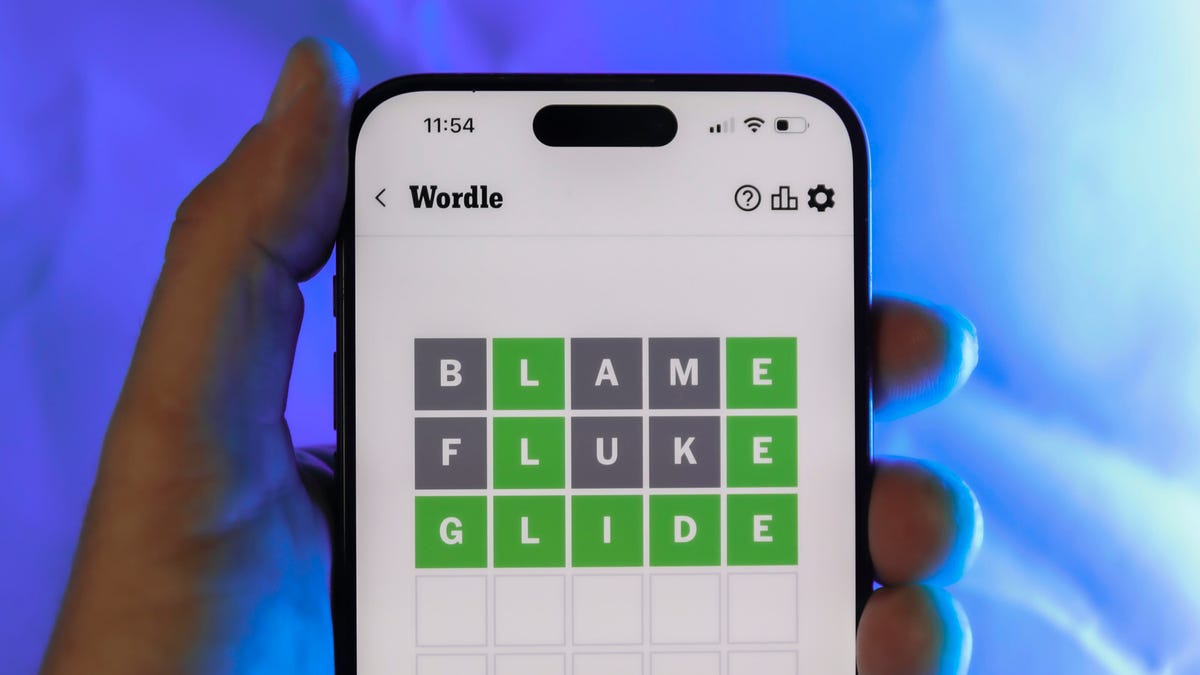Technologies
Samsung and Google Combine Forces in New Mixed Reality Partnership
Here’s what we think this new tech will bring.

This story is part of Samsung Event, CNET’s collection of news, tips and advice around Samsung’s most popular products.
Samsung made a lot of impressive announcements during its Galaxy S23 launch event last week. But an out-of-the-blue partnership with Qualcomm and Google on an upcoming mixed-reality platform certainly caught fans off guard. The new «XR» technology is an umbrella term for the intersection of AR, VR and mixed reality, or MR.
In a year that’ll see a new PlayStation VR headset, a new HTC Vive VR headset, a new Meta VR headset and likely a first-ever Apple VR headset, how will this Samsung product (or products) end up changing the game, and when could it arrive?
Samsung’s on-stage announcement was incredibly vague, with Google’s Hiroshi Lockheimer, head of Android, and Qualcomm CEO Cristiano Amon promising new hardware and software that’ll bring new experiences. But Samsung’s and Google’s histories in VR (and AR), along with Qualcomm’s major presence in the field, can point to some answers. So, too, can the last major Google and Samsung partnership two years ago, on smartwatches.
In 2021, Google’s partnership with Samsung began a rethinking of its smartwatch lineup, which also led to a Pixel Watch last fall. It’s likely that this new Samsung-Google-Qualcomm partnership could play out in a similar way in AR and VR. In this instance, though, both Google and Samsung will be making long-overdue returns to the VR/AR spaces they’ve both stepped away from for several years.
Here’s why Samsung and Google entering the field makes sense, and is even sorely needed.
VR and AR needs to work with phones again
VR goggles used to work with phones, half a decade ago. Back in the days of the Samsung Gear VR and Google’s Daydream View, you’d drop a phone into a cheap set of goggles that would use the device as a VR screen. It was a fun novelty back then, and greatly expanded access, but also had its limits. In 2023, oddly, VR headsets barely work with phones at all.
It’s annoying because most of us live our lives on our phones. VR, meanwhile, tends to stand alone. The Meta Quest 2 has slowly developed hooks into phones via its pairing app, but doesn’t have nearly enough cross-device intelligence.
Qualcomm has been trying to solve this idea already on its own. Via an early wave of AR glasses and certain Android phones, the company has been developing tools to bridge apps and experiences, and also have glasses directly connected to phones.
That’s a lot easier to do with official Android support. Google would enable that, and this Samsung-Qualcomm-Google partnership seems like a key to exploring how that would work with new VR headsets, or AR glasses, or both.
Right now, VR is the future. Then, AR
No one’s perfected AR glasses yet, although the hardware pieces are slowly coming together. In the meantime, standalone VR headsets using built-in cameras to show «passthrough» video of the real world, with virtual reality experiences overlaid, is the fastest solution to AR. It’s also called «mixed reality,» and it’s what the Meta Quest Pro does in some apps. Apple’s upcoming mixed reality headset should work the same way. HTC’s Vive XR Elite coming this February? Same thing.
I’d expect Samsung and Google to start with developing a similar lightweight VR headset with mixed reality features first, using similar Qualcomm chips as other hardware (or a next-gen chipset). After that, AR glasses.
Qualcomm has already promised a new generation of low-power wireless AR glasses that will work with next-gen phones over the next three years, using a new AR2 Gen 1 chipset announced last fall. Samsung’s Google partnership might also involve exploring how to build phones and glasses that could work together in the years to come.
Google’s already dipping its toes into assistive AR glasses research, and has a decade of experience in AR and VR before that. Samsung has all of its experience with the Gear VR and working with Oculus. Between the two, along with Qualcomm, it seems like there’s plenty of team wisdom.
A new OS (think smartwatches)
Evolving Android into a new software experience for VR and AR is the biggest challenge and opportunity, and it would make a ton of sense for Samsung to lean on Google here. VR headsets of the last five years have tried to go it alone with dedicated app stores, much like the Meta Quest. But the whole spirit of the idea of «the metaverse» is cross-device compatibility. And, in theory, easy app support.
Samsung shifted strategy on its watches by adopting Google’s WearOS as part of a partnership announced two years ago, aiming to bring Samsung’s watches closer to Google’s Android OS. But Samsung also helped Google think about higher-end health and hardware features to advance its aging smartwatch lineup. Which brings us to…
A road to Pixel hardware?
At some point, you’d imagine, Google will try to make its own AR/VR hardware again. The team behind Google’s Daydream, led by Clay Bavor, has shifted focus into Google Labs, working on more experimental projects like Project Starline (and those research-based assistive AR glasses).
It seems highly likely that the road to Google’s future XR hardware will run through Samsung in much the same way as smartwatches ahead of the Pixel Watch. The Galaxy Watch 4 became the first experiment in Wear OS 3, and then Google entered the waters over a year later with a Fitbit-infused Pixel Watch.
AR and VR headsets are significantly more complicated. Maybe Google waits a bit longer on a Pixel device. Maybe, as both Google’s Lockheimer and Qualcomm’s Amon seemed to suggest, there will be a variety of forms and possibilities, including some that aren’t headsets at all. Remember: Google’s idea of «ambient computing» involves immersive tech from every angle, including stuff that isn’t worn.
What year will this emerge?
That’s the hard question here. It seems likely that Google will dive into this partnership more at its I/O developer conference that usually happens in May, which would be right before Apple would likely go over its VR headset at WWDC. We haven’t seen any hint of any actual hardware yet. It’s not impossible that a standalone VR headset in the spirit of the Meta Quest could materialize sometime sooner than later, but it would be a huge surprise if anything arrived in 2023.
When Samsung and Google announced the Wear OS 3 partnership in 2021, it came with a teaser photo of the watch itself and a promise of hardware by year’s end. No such statements were made or shown this time and 2024 would seem like the earliest likely launch date.
And at any rate, 2023 is looking like a turbulent year for the greater XR world. While plenty of VR hardware is coming, it’s unclear who can actually afford it. For Samsung and Google, the best bet might be to wait out this crowded year and figure out how to make improved, possibly more affordable hardware in 2024.
Technologies
Today’s NYT Connections Hints, Answers and Help for Dec. 26, #929
Here are some hints and the answers for the NYT Connections puzzle for Dec. 26 #929

Looking for the most recent Connections answers? Click here for today’s Connections hints, as well as our daily answers and hints for The New York Times Mini Crossword, Wordle, Connections: Sports Edition and Strands puzzles.
Today’s NYT Connections puzzle is full of fun pop-culture references. Read on for clues and today’s Connections answers.
The Times has a Connections Bot, like the one for Wordle. Go there after you play to receive a numeric score and to have the program analyze your answers. Players who are registered with the Times Games section can now nerd out by following their progress, including the number of puzzles completed, win rate, number of times they nabbed a perfect score and their win streak.
Read more: Hints, Tips and Strategies to Help You Win at NYT Connections Every Time
Hints for today’s Connections groups
Here are four hints for the groupings in today’s Connections puzzle, ranked from the easiest yellow group to the tough (and sometimes bizarre) purple group.
Yellow group hint: Golden state cliches.
Green group hint: Funny films.
Blue group hint: Rock on.
Purple group hint: Not white.
Answers for today’s Connections groups
Yellow group: California-based character tropes.
Green group: Comedy subgenres.
Blue group: ’70s rock bands.
Purple group: Black ____.
Read more: Wordle Cheat Sheet: Here Are the Most Popular Letters Used in English Words
What are today’s Connections answers?
The yellow words in today’s Connections
The theme is California-based character tropes. The four answers are movie exec, surfer, tech bro and Valley Girl.
The green words in today’s Connections
The theme is comedy subgenres. The four answers are buddy, cringe, screwball and stoner.
The blue words in today’s Connections
The theme is ’70s rock bands. The four answers are America, Chicago, Foreigner and Journey.
The purple words in today’s Connections
The theme is black ____. The four answers are Forest, Friday, Panther and Widow.
Don’t miss any of our unbiased tech content and lab-based reviews. Add CNET as a preferred Google source.
Technologies
Today’s NYT Strands Hints, Answers and Help for Dec. 26 #663
Here are hints and answers for the NYT Strands puzzle for Dec. 26, No. 663.

Looking for the most recent Strands answer? Click here for our daily Strands hints, as well as our daily answers and hints for The New York Times Mini Crossword, Wordle, Connections and Connections: Sports Edition puzzles.
Today’s NYT Strands puzzle is a fun one, but you might struggle at first to see a connection between the words. If you need hints and answers, read on.
I go into depth about the rules for Strands in this story.
If you’re looking for today’s Wordle, Connections and Mini Crossword answers, you can visit CNET’s NYT puzzle hints page.
Read more: NYT Connections Turns 1: These Are the 5 Toughest Puzzles So Far
Hint for today’s Strands puzzle
Today’s Strands theme is: Please hold.
If that doesn’t help you, here’s a clue: Cats love these more than they love expensive toys.
Clue words to unlock in-game hints
Your goal is to find hidden words that fit the puzzle’s theme. If you’re stuck, find any words you can. Every time you find three words of four letters or more, Strands will reveal one of the theme words. These are the words I used to get those hints, but any words of four or more letters that you find will work:
- BOXING, CHEAT, HEAT, SMOCK, MOCK, LATE, TEAM, MEAT, TEAMS, LOOT, TOLE, BALL, BALE, KALE, TALL
Answers for today’s Strands puzzle
These are the answers that tie into the theme. The goal of the puzzle is to find them all, including the spangram, a theme word that reaches from one side of the puzzle to the other. When you have all of them (I originally thought there were always eight but learned that the number can vary), every letter on the board will be used. Here are the nonspangram answers:
- GIFT, SHOE, TOOL, LUNCH, MATCH, PIZZA, BALLOT, TACKLE (All are words that can be placed in front of «box.»)
Today’s Strands spangram
Today’s Strands spangram is BOXINGDAY. To find it, start with the B that’s four letters down on the far-left row, and wind across and then down.
Don’t miss any of our unbiased tech content and lab-based reviews. Add CNET as a preferred Google source.
Technologies
Today’s Wordle Hints, Answer and Help for Dec. 25, #1650
Here are hints and the answer for today’s Wordle for Dec. 25, No. 1,650.

Looking for the most recent Wordle answer? Click here for today’s Wordle hints, as well as our daily answers and hints for The New York Times Mini Crossword, Connections, Connections: Sports Edition and Strands puzzles.
Today’s Wordle puzzle has some tough-to-guess letters. If you need a new starter word, check out our list of which letters show up the most in English words. If you need hints and the answer, read on.
Read more: New Study Reveals Wordle’s Top 10 Toughest Words of 2025
Today’s Wordle hints
Before we show you today’s Wordle answer, we’ll give you some hints. If you don’t want a spoiler, look away now.
Wordle hint No. 1: Repeats
Today’s Wordle answer has no repeated letters.
Wordle hint No. 2: Vowels
Today’s Wordle answer has one vowel.
Wordle hint No. 3: First letter
Today’s Wordle answer begins with P.
Wordle hint No. 4: Last letter
Today’s Wordle answer ends with M.
Wordle hint No. 5: Meaning
Today’s Wordle answer can refer to a geometric figure.
TODAY’S WORDLE ANSWER
Today’s Wordle answer is PRISM.
Yesterday’s Wordle answer
Yesterday’s Wordle answer, Dec. 24, No. 1649, was SPOOL.
Recent Wordle answers
Dec. 20, No. 1645: WHITE
Dec. 21, No. 1646: QUILT
Dec. 22, No. 1647: CONCH
Dec. 23, No. 1648: GLINT
Don’t miss any of our unbiased tech content and lab-based reviews. Add CNET as a preferred Google source.
What’s the best Wordle starting word?
Don’t be afraid to use our tip sheet ranking all the letters in the alphabet by frequency of uses. In short, you want starter words that lean heavy on E, A and R, and don’t contain Z, J and Q.
Some solid starter words to try:
ADIEU
TRAIN
CLOSE
STARE
NOISE
-

 Technologies3 года ago
Technologies3 года agoTech Companies Need to Be Held Accountable for Security, Experts Say
-

 Technologies3 года ago
Technologies3 года agoBest Handheld Game Console in 2023
-

 Technologies3 года ago
Technologies3 года agoTighten Up Your VR Game With the Best Head Straps for Quest 2
-

 Technologies4 года ago
Technologies4 года agoBlack Friday 2021: The best deals on TVs, headphones, kitchenware, and more
-

 Technologies4 года ago
Technologies4 года agoVerum, Wickr and Threema: next generation secured messengers
-

 Technologies4 года ago
Technologies4 года agoGoogle to require vaccinations as Silicon Valley rethinks return-to-office policies
-

 Technologies4 года ago
Technologies4 года agoOlivia Harlan Dekker for Verum Messenger
-

 Technologies4 года ago
Technologies4 года agoiPhone 13 event: How to watch Apple’s big announcement tomorrow
